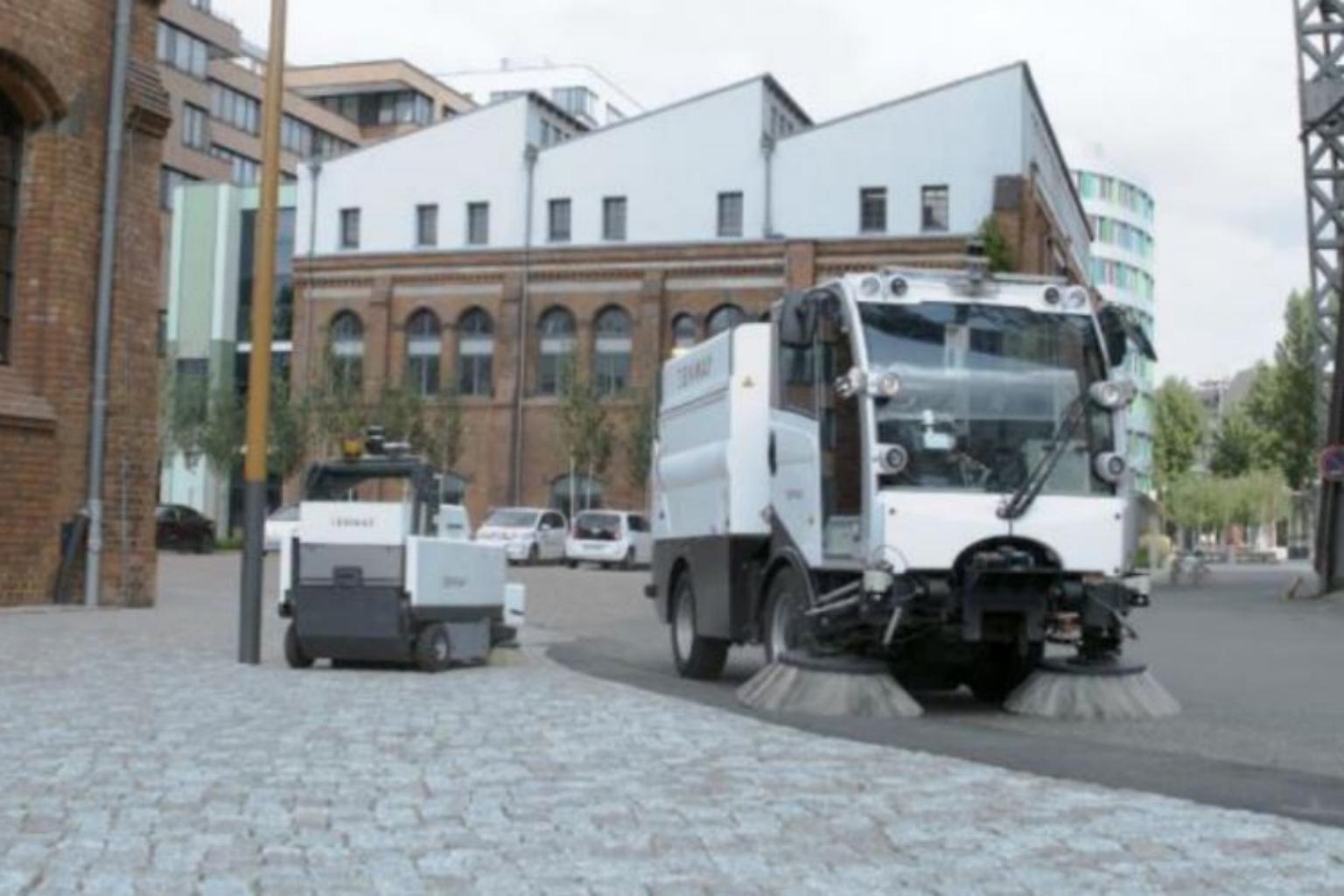Two Singapore consortia to develop, trial driverless road cleaning vehicles
Sign up now: Get ST's newsletters delivered to your inbox

The two projects are in tandem with NEA's efforts to better optimise resources, push technology adoption, and improve productivity across the environmental services industry.
PHOTO: ENWAY
SINGAPORE - Two consortia in Singapore will be undertaking the design, development and trial of driverless vehicles for road cleaning, having been awarded research and development projects by the National Environment Agency (NEA) and the Ministry of Transport.
One consortium comprises Nanyang Technological University, Enway, Veolia ES Singapore Industrial and Wong Fong Engineering Works; the other comprises ST Engineering Land Systems and 800 Super Waste Management, the agencies said in a joint statement on Thursday (March 21).
The two consortia will develop and trial one "autonomous environmental service vehicle" (AESV) each, and apply autonomous vehicle (AV) technology to commercial mechanical road sweepers. This will be carried out over 18 months, which includes a one-year development phase, followed by a proof-of-concept (POC) trial over six months.
"The POC trials are expected to begin in 2020. The trials will be conducted in two stages: each consortium will be required to test and demonstrate the safety features of their AESV units within the enclosed circuit and protected environment of the Cetran AV Test Centre; and each consortium will only be allowed to commence trials on public roads at designated AV test sites, such as one-north, after they have successfully passed a rigorous safety assessment.
"The AESVs are required to have on board at all times for the duration of the trials a safety driver who is trained to take immediate control of the vehicle, in accordance to strict operational protocols," said the agencies.
They added that the two projects are in tandem with NEA's efforts to better optimise resources, push technology adoption, and improve productivity across the environmental services industry.
The proposals were selected out of eight proposals, based on their potential to fulfil various government objectives for deploying the vehicles, their prior experience in developing AV technologies, and their familiarity with road cleaning operations in Singapore. These government objectives include safety as a priority with minimal disruption to the public, effective cleaning of public roads, reduction of reliance on manpower, as well as environmental friendliness.
In addition, the deployment of the driverless vehicles for road cleaning falls under the roadmap developed by the Committee of Autonomous Road Transport for Singapore (Carts) to leverage AV technology to improve productivity in utility operations, and alleviate traffic congestion by shifting utility operations to off-peak hours.
Mr Loh Ngai Seng, Permanent Secretary for Transport and Carts chairman, said: "Deploying AV technologies goes beyond enhancing the accessibility and connectivity of our transport system. The deployment of AESVs will enable us to optimise the use of our road network, while improving the productivity of road cleaning operations. With reduced reliance on manpower, we can potentially shift road cleaning activities to the night, and reduce congestion during the day."
NEA chief executive Tan Meng Dui said: "These projects form the building blocks of a transformed future cleaning sector of higher productivity and better jobs... We look forward to the continued contributions of the robotics industry in enabling the transformation of the ES (environmental services) industry, not just for road cleaning but across the entire cleaning sector."


